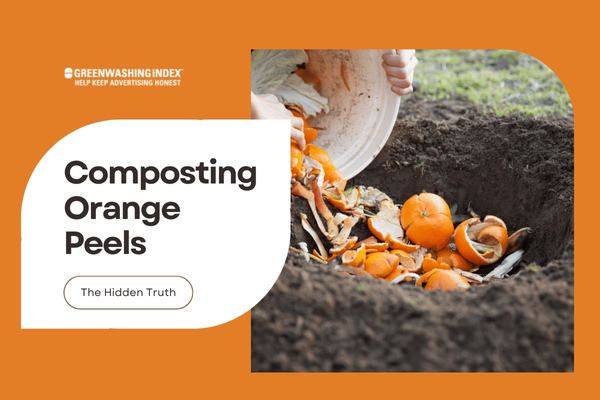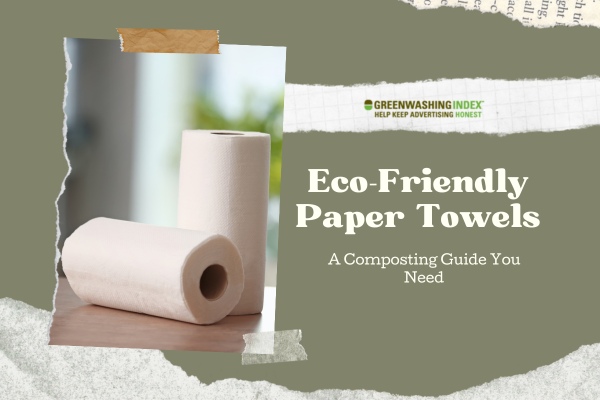I’ve always loved the sweet scent of citrus that fills my kitchen whenever I peel an orange. The organic, tangy aroma adds a spark of freshness to any day. But did you ever wonder what happens to those peels after they’ve served their purpose?
Have you ever pondered over throwing them into your compost pile, but hesitated because you heard someone say that citrus doesn’t belong there? Oh, and let’s not forget about composting kitchen waste and its significance in organic waste recycling.
Well, let’s bust some myths today folks! Yes, you have every right to place those orange peels in your compost heap. Contrary to popular belief, these bright-colored scraps won’t damage your lovely little garden venture. In fact, composting orange peels can provide numerous benefits for both your garden and the environment at large.
Here Is What You’ll Discover
- The unspoken truths of composting orange peels
- Successful ways to prepare and manage citrus in your compost.
- I am overcoming potential challenges associated with adding oranges to the mix.
- An overview of how composting contributes towards sustainable living.
The Unspoken Truths of Composting Orange Peels
Unraveling the world of sustainable living, I found myself on a fascinating journey where something as simple as composting orange peels can make such a significant impact. I’ve stepped into this space with two main talking points to think over: The essence of the composting process and then deciphering if you really can compost orange peels.
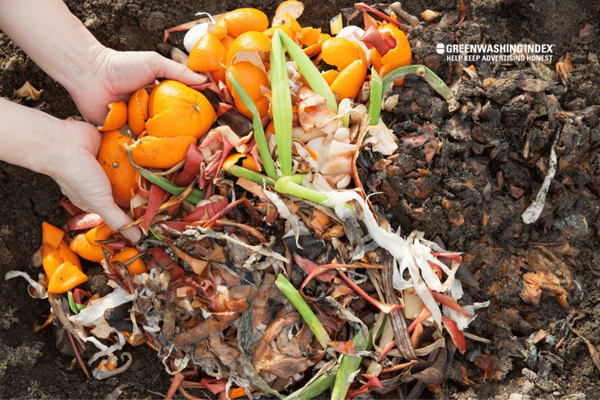
What is the Process of Composting?
Composting, a term often thrown around in conversation when discussing gardening or sustainable living, is as beautifully simple yet complex at its core. It is transforming everyday organic waste that we generate into rich, fertile soil that feeds plants and nourishes gardens.
From your morning coffee grounds to the vegetable peelings you toss aside while cooking dinner, every bit plays an essential role within your compost pile.
- It’s all about decomposition: Billions of microorganisms inside your compost heap break down all those kitchen scraps into nutrient-rich soil.
- Environmental impact: You are actively decreasing landfill waste by recycling organic material yourself at home.
- Healthier gardens: Compost increases concentration levels of nutrients in your garden soil and improves its water-holding capacity.
Unlocking Secrets: Can You Compost Orange Peels?
Now onto a contentious topic that’s been discussed more frequently. “Can you compost citrus peels?” Now to clarify any potential misgivings right here – yes! You absolutely can put those orange or other citrus peels straight onto your compost pile.
However, it’s crucial to acknowledge nuances existing in this operation like maintaining balance in ingredients used and following proper preparation steps for fruit scraps. But fundamentally speaking, those tangy additions are perfectly welcome amidst various other elements of kitchen waste for organic recycling.
The beauty of nature’s processes and diversity allows those concerns around citrus peel acidity or possible insect attraction to be handled deftly within well-managed compost piles.
Unlocking this secret teaches me that “composting orange peels” is not only possible but offers a wealth of benefits for our gardens and environment. This move lets us convert otherwise discarded parts of our favorite fruits into valuable soil amendments while actively promoting sustainable living habits.
Key Factors in Successful Composting of Orange Peels
When it comes to composting kitchen waste, there’s far more to consider than simply recycling. The reality is that different types of organic waste can have a big impact on your composting success rate. Specifically, composting orange peels requires understanding the critical elements including Nitrogen-Carbon balance and correct preparation of peels.
Nitrogen-Carbon Balance
Understanding how nitrogen (N) and carbon (C) contribute to effective decomposition is central to the art of composting. So why exactly does this matter?
- Nitrogen: Often referred to as ‘greens’, nitrogen-rich waste includes items like fruit scraps, coffee grounds, and grass clippings. Nitrogen promotes microbial growth which champions the breakdown process.
- Carbon: Known as ‘browns’, this includes materials such as leaves, shredded paper, and yes – orange peels! Carbon provides microbes with energy while also balancing out potential odors from high-nitrogen content.
The key? Balancing these two elements appropriately. A good rule of thumb is maintaining a 30:1 C:N ratio in your compost pile for prime decomposition conditions.
Now let’s talk about how I prepare orange peels for better incorporation into my composting efforts.
Preparing Orange Peels for Composting
To help along the natural breakdown process when you’re composting orange peels, here are a few tips I’ve found valuable:
- Firstly, size matters. Smaller pieces decompose quicker – simple science! Break up your orange rinds into small bits before consigning them to the heap. This supports easier integration with other waste materials boosting overall efficiency.
- Another useful trick I employ is freezing these small segments prior to adding them to my compost pile. When you defrost frozen slices of oranges, their cell structure breaks down faster increasing their rate of decomposition once added to the compost.
- Lastly, remember variety is the spice of composting life. Mixing your orange peels with a wider range of ‘green’ and ‘brown’ materials will encourage a healthier, more fertile compost mix.
Potential Challenges in Composting Orange Peels
Before diving right into composting orange peels, it’s important to consider a couple of challenges we might face. The natural acidity levels within the peels and the potential for pest invasions are two concerns that can affect your garden if not managed correctly in the compost. But worry not! I’ll provide some tips and tricks to help you overcome these hurdles with ease.
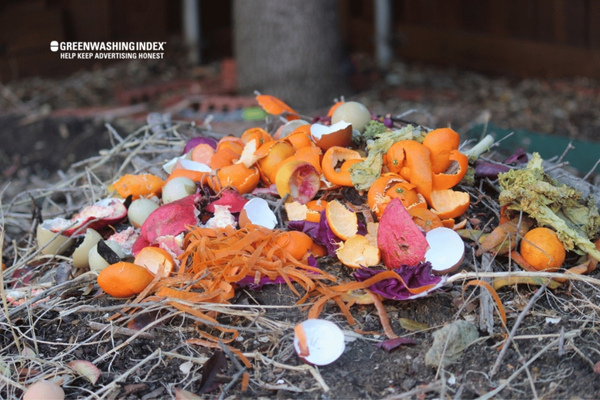
Acidity Concerns
A common question when composting orange peels is – will they turn my compost pile too acidic? Let’s demystify this concern. Yes, citrus fruits including oranges are naturally acidic, but their acidic nature shouldn’t necessarily be a cause for alarm.
When fresh and moist, orange peels have a low pH which means they are indeed quite acidic. However, as they decompose in your compost pile, their acidity neutralizes over time:
- The action of microbes during decomposition breaks down the citric acid present in the peel.
- When adequately balanced with browns (carbon-rich materials), any initial acidity rarely poses an issue.
- Like all green materials that get layered into our piles, they also transform into softer brownish particles over time.
The takeaway? With proper management techniques applied during your organic waste recycling sessions, the added acidity from our friendly citrus remnants can be easily accommodated!
Pest Invasion
Another potential challenge is pests being attracted by the sweet smell of decomposition or fruit flies using your newly-composted orange peels as their breeding grounds. Here’s how we handle this:
- Bury them deep: Ensure to bury kitchen waste like citrus peels deep within your pile or bin.
- Keeping it covered: Covering helps keep unwanted visitors at bay while aiding moisture retention in dry climates.
- Turn Regularly: A regularly turned heap encourages faster decomposition while reducing chances of attracting pests.
The bottom line? Composting orange peels can attract pests, yes, but it’s not a given. There are ways to mitigate such issues, turning what may look like drawbacks into opportunities to fine-tune your composting skills.
The art of composting kitchen waste including citrus peels ultimately boils down to balance and proper maintenance. Following these simple steps will ensure your compost pile remains nutritious and beneficial to your garden without becoming a pest magnet!
Benefits of Composting Orange Peels
I’ve already established the possibility and methodology of composting orange peels. Now, we’ll delve into why composting citrus peels is worth your time and effort. From boosting your garden’s vitality to supporting a sustainable lifestyle, these benefits might give you enough reasons to toss that next orange peel right in your compost pile.
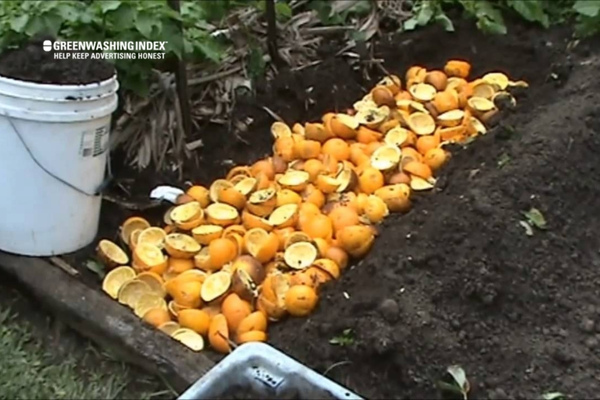
Nutritional Contents
The initial benefit circling my mind is the nutritional treasure trove encapsulated in orange peels. Beyond adding volume, these often disregarded kitchen scraps are a source of vital nutrients that can enrich your soil profoundly.
- Nutrient-Rich: Orange peels provide crucial nutrients like potassium and calcium to your compost heap, which eventually make their way into your beloved plants. On top of that, oranges brimming with vitamin C also indirectly contribute some of it as it breaks down.
- Increase Decomposition Rate: The essential oils in oranges quicken the decomposition process, hence fostering a healthier and faster-growing Compost pile. The citrusy scent they give off is an added bonus!
- Promote Microbial Activity: The presence of citrus fruits like oranges significantly enhances microbial life diversity within your compost pile—a key driver for effective organic waste recycling.
Sustainability Advantages
Composting orange peels isn’t exclusively about boosting soil health or accelerating decomposition; it echoes our commitment towards more sustainable living practices. Whether you’re an environmental steward or aspire to be one, incorporating this habit can unfold noticeable impacts over time.
- Lessens Solid Waste: Think about how much organic waste like orange peels you’d otherwise toss away each week. By directing this waste towards composting kitchen waste instead, you reduce the garbage heading off to landfills significantly—benefiting both earth and our conscience.
- Cuts Down Fertilizer Use: Vouching for self-made nature-rich compost lessens dependency on store-bought chemical fertilizers. This not merely saves you money, but also shields your greens from potentially harmful substances.
- Promotes Local Recycling: Composting orange peels is a way to recycle kitchen waste using just your backyard locally. It’s an echo of self-sufficiency and sustainability in the truest sense.
FAQs
What other citrus fruits can I include in my home composter?
Absolutely! You can include peels from lemons, limes, and grapefruit. All citrus peels are suitable for composting despite their acidity.
How long do orange peels take to compost?
Typically, orange peels take around three to six months to decompose in a compost pile fully. The process may vary based on the composting conditions and how small the pieces are.
Do orange peels help deter pests in my garden?
Interestingly enough, many gardeners claim that including citrus-like oranges in your compost can help deter certain pests. The strong scent of citrus might repel some insects and critters.
Conclusion
In conclusion, composting orange peels is definitely possible. Not only do orange peels boost your compost heap but also yield rich and nutrient-dense soil for your beloved plants.
Forget about the initial apprehension; with a balanced mix of greens and browns in your compost, even potential acidity and pest concerns become minimal. Embracing this organic waste recycling method enhances sustainability and transforms kitchen waste into something truly valuable.
Key Takeaway Points:
- Composting orange peels is feasible and beneficial.
- Maintaining carbon-nitrogen balance for effective decomposition is crucial.
- Cutting oranges into small pieces eases the composting process.
- The fear of acidity imbalance and pests shouldn’t prevent you from including citrus peels in your compost bin.
- Orange peels enrich the soil with exceptional nutrition.
- Composting promotes a sustainable lifestyle by recycling organic kitchen wastes

